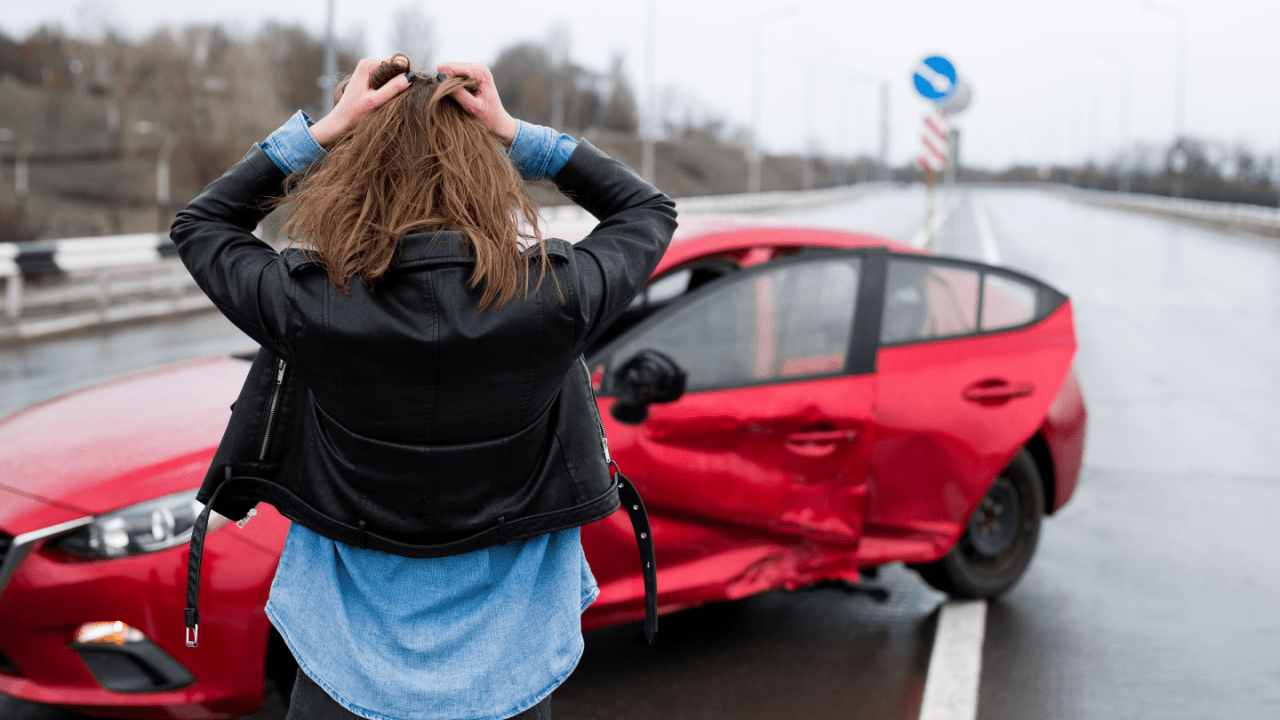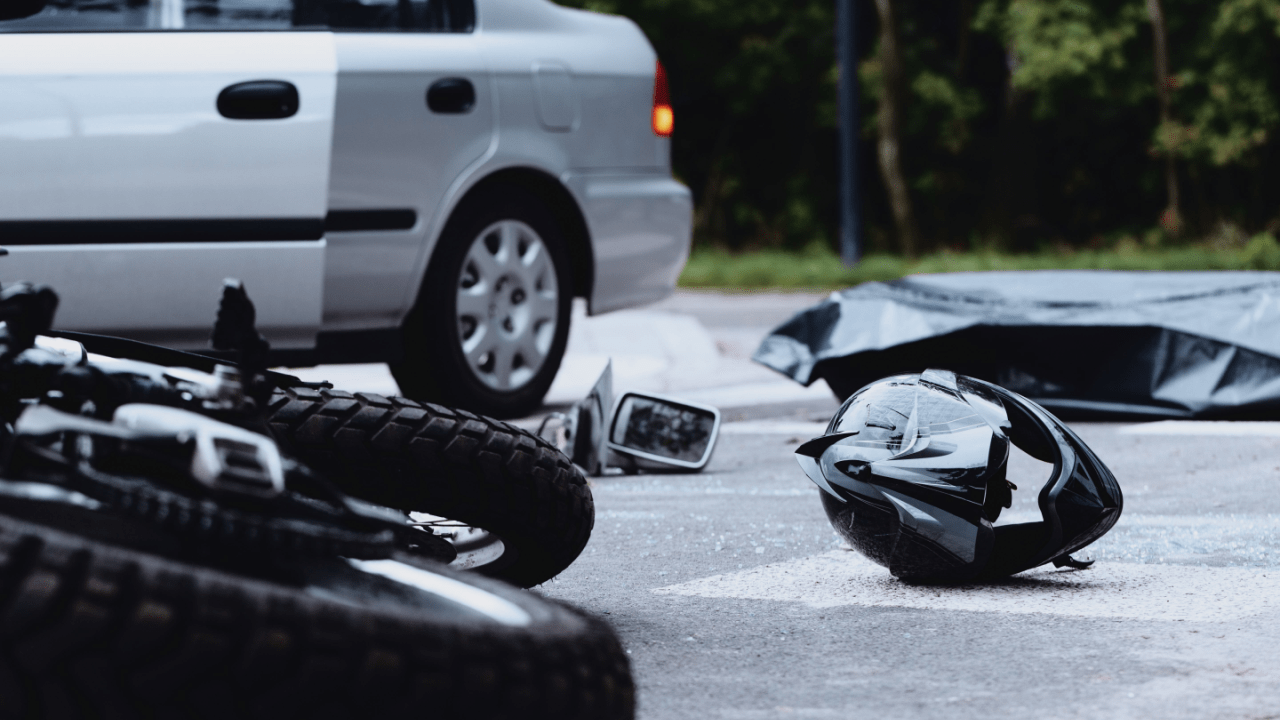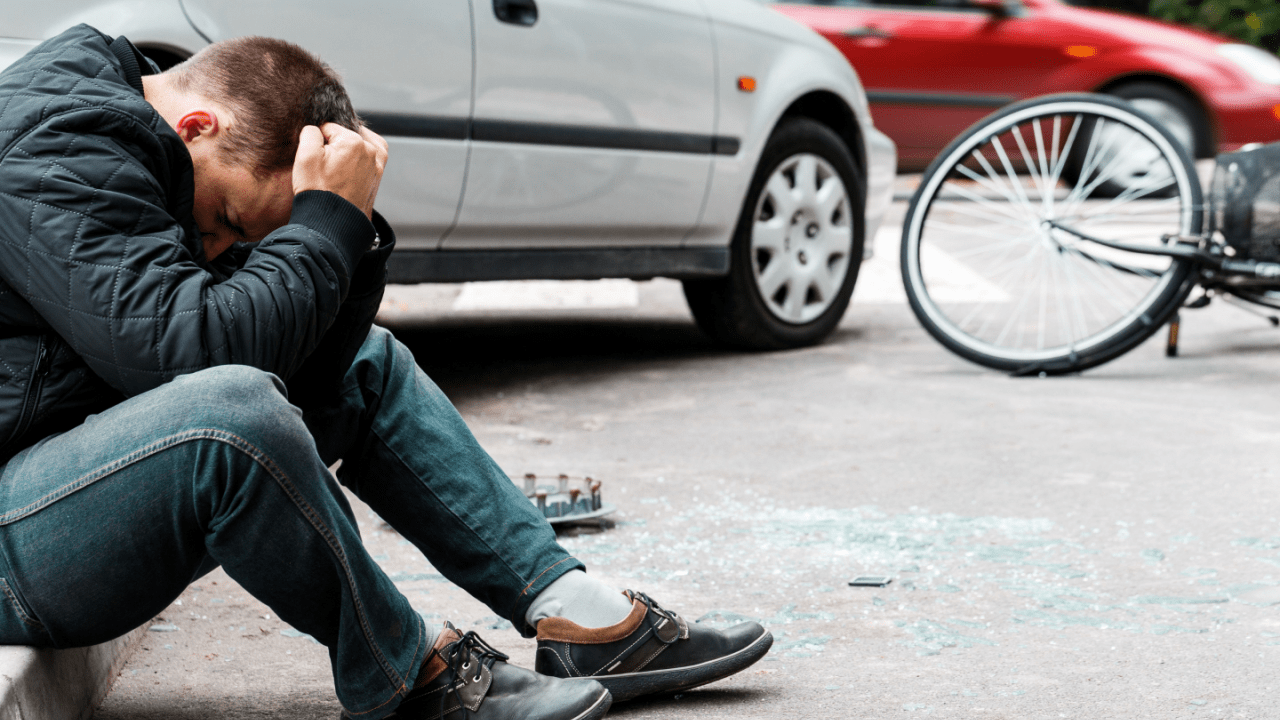- Mon - Fri: 8.30 AM - 5:00 PM
- 26565 Agoura Rd., 200, Calabasas, CA 91302
- 818-884-8075

What Can a Single Car Accident Lead To?
What Can a Single Car Accident Lead To and Why It Matters
What can a single car accident lead to? More than many people expect—these crashes can result in medical bills, legal disputes, denied insurance claims, and even lawsuits, despite involving only one vehicle. But the reality is that a single car accident can lead to just as many legal, medical, and financial consequences—sometimes more.
From insurance complications and personal injuries to citations and denied claims, a single car accident isn’t always straightforward. Many drivers wrongly assume they have no case or no right to compensation simply because no other vehicle was involved.
In this article, we’ll explore the full range of outcomes a single car accident can lead to—from injury claims to legal representation—so drivers and attorneys alike can better understand the hidden risks and opportunities in these often-overlooked cases.
What Is a Single Car Accident?
A single car accident, also called a solo vehicle accident, involves only one vehicle. This might happen when a driver:
- Loses control of the car and hits a tree, pole, fence, or building
- Swerves off the road to avoid an animal, pedestrian, or another vehicle
- Hydroplanes or spins out due to rain, ice, or road debris
- Crashes because of a blown tire or brake failure
- Hits a pothole or poorly marked construction zone
Even though only one vehicle is involved, the damage can be serious—and legal questions often remain.
Common Causes of Single Car Accidents:
- Weather conditions: Slippery roads from rain, snow, or black ice
- Distracted driving: Texting, eating, or adjusting controls
- Mechanical failure: Faulty brakes, tires, airbags, or steering systems
- Driver error: Speeding, falling asleep, or driving under the influence
- Hazardous roads: Potholes, faded lane markings, lack of signage
- Obstacles: Animals, fallen branches, debris, or other road hazards
In many cases, these accidents occur in a split second—but the aftermath can last for months.
Legal Implications of a Single Car Accident
One of the biggest misconceptions is that the driver in a single car accident is always at fault. While driver error is a leading cause, it’s not the only explanation—and it’s not always legally conclusive.
Determining Liability
Liability may fall on a government agency for unsafe road conditions, or a manufacturer in cases involving vehicle defects such as brake or airbag failure. Even a “phantom driver” can trigger a valid claim if their actions caused you to crash, even without contact.
However, there are several scenarios where fault could lie elsewhere:
1. Road Conditions or Government Negligence
If the accident happened because of a poorly maintained road, missing signage, or dangerous construction zone, the city, county, or state may be held partially liable.
2. Vehicle Defects
Faulty tires, brakes, airbags, or other components may result in a product liability claim against the manufacturer or auto repair shop.
3. Other Drivers’ Actions
Sometimes, another driver causes a crash by swerving into your lane or braking suddenly, forcing you off the road—yet never makes contact. These “phantom vehicle” cases can be difficult but not impossible to prove.
4. Animals or Unexpected Hazards
If your crash was the result of a loose animal, falling cargo, or debris from another vehicle, there may be a valid claim against the responsible party.
Citations and Criminal Charges
Drivers involved in a single car accident may also face legal consequences, including:
- Traffic tickets (speeding, reckless driving)
- DUI or DWI charges
- Leaving the scene of an accident
- Driving without insurance or a license
These legal implications add another layer to the case—and may require legal representation even if no other vehicle was involved.
Can You File a Claim After a Single Vehicle Accident?
Absolutely. Just because no other driver was involved doesn’t mean you can’t file a claim—or that you’re automatically ineligible for compensation.
Types of Claims That May Arise from a Single Car Accident:
Insurance Claims
Most drivers carry collision coverage, which pays for damage to your vehicle regardless of fault. If you’re injured, your medical payments coverage or personal injury protection (PIP) may apply.
If another party indirectly caused the crash (e.g., a vehicle defect or hazardous road), you may also be eligible to file under:
- Uninsured motorist coverage (UM)
- Underinsured motorist coverage (UIM)
- Liability coverage for a third party
Personal Injury Lawsuits
If your crash was caused by a defective product, poor road maintenance, or another driver’s negligence—even if they didn’t hit you—you may have a legal claim for:
- Medical expenses
- Lost wages
- Pain and suffering
- Property damage
Wrongful Death Claims
In tragic cases where a passenger is killed in a single car crash, their surviving family members may have a claim—especially if the accident resulted from a third-party failure or a defective component.
Common Injuries in Single Car Accidents
A single car accident can still cause serious and life-altering injuries. Just because only one vehicle was involved doesn’t mean the impact was minor. In fact, many solo crashes occur at high speeds, or involve collisions with immovable objects like guardrails, trees, or utility poles—leading to significant physical trauma.
Types of Injuries Often Seen in Solo Vehicle Crashes:
Whiplash and Neck Injuries
Sudden deceleration causes the head and neck to snap forward and back, straining muscles, ligaments, and vertebrae.
Head Trauma
Head injuries, including concussions and traumatic brain injuries (TBIs), are common in single car accidents, especially if airbags fail or the driver hits the steering wheel or window.
Back and Spinal Cord Injuries
Slipped discs, herniations, or spinal fractures can result from impact or sudden twisting motions during a crash.
Fractures and Broken Bones
Arm, leg, rib, and facial fractures can occur if the driver or passenger is thrown forward or trapped in the vehicle.
Soft Tissue Damage
Torn ligaments, bruising, and internal organ trauma often go unnoticed initially but can worsen without medical attention.
The Importance of Immediate Medical Attention
Even if injuries appear minor, it’s essential to seek medical help immediately after a single car accident. Many symptoms take hours or days to appear, and a medical report serves as critical evidence if you decide to pursue a claim.
Failing to document your injuries early on can harm your chances of recovering compensation.
What Should You Do After a Single Car Accident?
Knowing what steps to take immediately after a single car accident can protect both your health and your legal rights. Many people assume that if no one else is involved, the situation is straightforward—but the reality is, the details you gather now can determine your ability to file a claim later.
Step-by-Step Guide After a Solo Crash:
1. Check for Injuries and Call 911
Your safety comes first. Report the accident and request medical assistance if needed, even if injuries seem minor.
2. Stay at the Scene and Document Everything
Take photos of your vehicle, road conditions, obstacles, skid marks, and anything that might explain the crash. If possible, record video and audio notes while your memory is fresh.
3. Report the Accident to Police
Even for a single car accident, a police report adds credibility to your version of events and may support a future insurance or legal claim.
4. Exchange Information (If a third party was indirectly involved)
If another driver’s actions caused your crash—even if there was no impact—try to get their license plate number or contact info if possible.
5. Notify Your Insurance Company
Report the accident promptly. Be honest, but avoid speculation about fault. Let your attorney handle any complex questions.
6. Consult a Car Accident Lawyer
If you were injured, received a citation, or suspect the accident was caused by poor road conditions or a vehicle defect, contact a lawyer. A qualified attorney can evaluate your options, investigate liability, and protect your rights.
How Lawyers Help After a Single Car Crash
One of the most important takeaways from this article is that legal help matters—even in a single car accident. Lawyers don’t just handle lawsuits against other drivers. They also help injured victims pursue claims against insurers, manufacturers, municipalities, and others who may share responsibility.
How Attorneys Add Value in Solo Accident Cases:
Attorneys can add value by:
- Investigating third-party liability (e.g., manufacturer or government fault)
- Filing insurance claims correctly
- Disputing unfair citations or claim denials
- Negotiating compensation for injuries, lost income, and suffering
By offering representation in these “gray area” cases, firms can capture high-value opportunities that others might overlook.
Misconceptions About Single Vehicle Accidents
Myth #1: The Driver Is Always At Fault
False. Poor road design, phantom drivers, or vehicle malfunctions may be responsible.
Myth #2: You Don’t Need a Lawyer
In fact, solo accident victims often need a lawyer more—especially when insurers try to shift all the blame.
Myth #3: Insurance Covers Everything Automatically
Insurance companies look for ways to minimize payouts. Without proper evidence or legal backup, they may deny or undervalue your claim.
Myth #4: These Cases Aren’t Worth Pursuing
Even low-speed or minor crashes can cause costly injuries and long-term problems. Legal evaluation is always worth considering.
How a Single Car Accident Can Result in Significant Consequences
Many people underestimate the seriousness of a single car accident, assuming it’s too minor to warrant legal attention. But as we’ve explored, solo vehicle crashes can lead to severe physical injuries, extensive property damage, legal citations, denied insurance claims, and even liability disputes.
These incidents aren’t always as cut and dry as they appear. A solo crash may still involve third-party negligence—such as government entities that failed to maintain safe roads or manufacturers responsible for defective car parts. In other cases, legal representation is needed simply to challenge citations, defend against insurance pushback, or recover rightful compensation.
For both injury victims and attorneys, it’s critical to recognize that a single car accident doesn’t mean there’s no case—it just means the cause and liability may require deeper investigation.
Get Help After a Single Car Accident — Legal Guidance That Makes a Difference
Legal Brand Marketing connects law firms with exclusive, high-intent leads—including individuals recovering from solo car accidents. If you’re a personal injury attorney, our auto accident lead services can help you target qualified clients and grow your caseload with confidence.
Our exclusive lead generation services help attorneys:
- Reach individuals searching for legal support after single vehicle crashes
- Target high-intent cases involving injury, denied claims, or third-party negligence
- Educate prospective clients on their rights and case potential
- Convert more inbound opportunities into signed cases
Need legal help after a solo crash? Contact us to start the conversation.
Frequently Asked Questions (FAQs)
1. Can you sue someone if they didn’t hit your car but caused the accident?
Yes. If another driver’s negligence caused your crash—even without contact—you may have a valid claim. These “phantom driver” cases require supporting evidence.
2. Does a single vehicle accident affect my insurance rates?
Often yes, especially if the insurance company determines you’re at fault. But if liability is disputed or shared, your rates may be protected.
3. What if my car malfunctioned before the crash?
You may have grounds for a product liability claim against the vehicle manufacturer or repair service if the failure was due to a defect or negligence.
4. Can I still recover damages if I was partially at fault?
Yes—depending on your state’s comparative negligence laws. You may still receive compensation even if you share some responsibility.
5. Is a police report required for a single car accident?
It’s strongly recommended. A police report helps support insurance claims and provides neutral documentation of the crash.
Key Takeaways
- A single car accident may involve injuries, insurance disputes, and legal claims—despite no other vehicle being involved.
- These crashes can result from road hazards, vehicle defects, or indirect actions by others.
- You can file insurance or personal injury claims even after a solo accident, especially when documentation and legal help are involved.
- Attorneys play a critical role in helping drivers recover compensation and dispute fault.
- Law firms should treat single car accident leads as serious opportunities—not as “small cases.”



